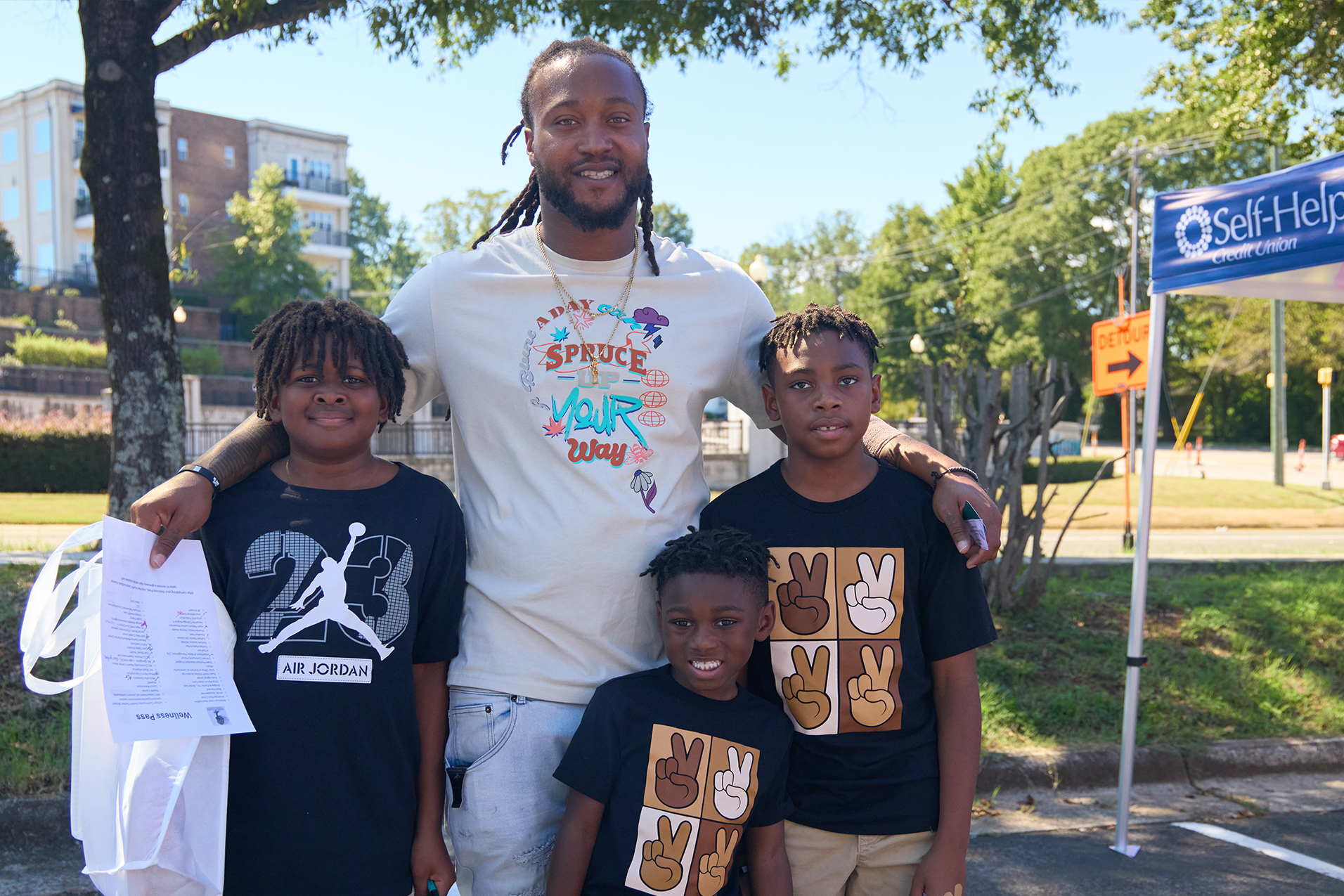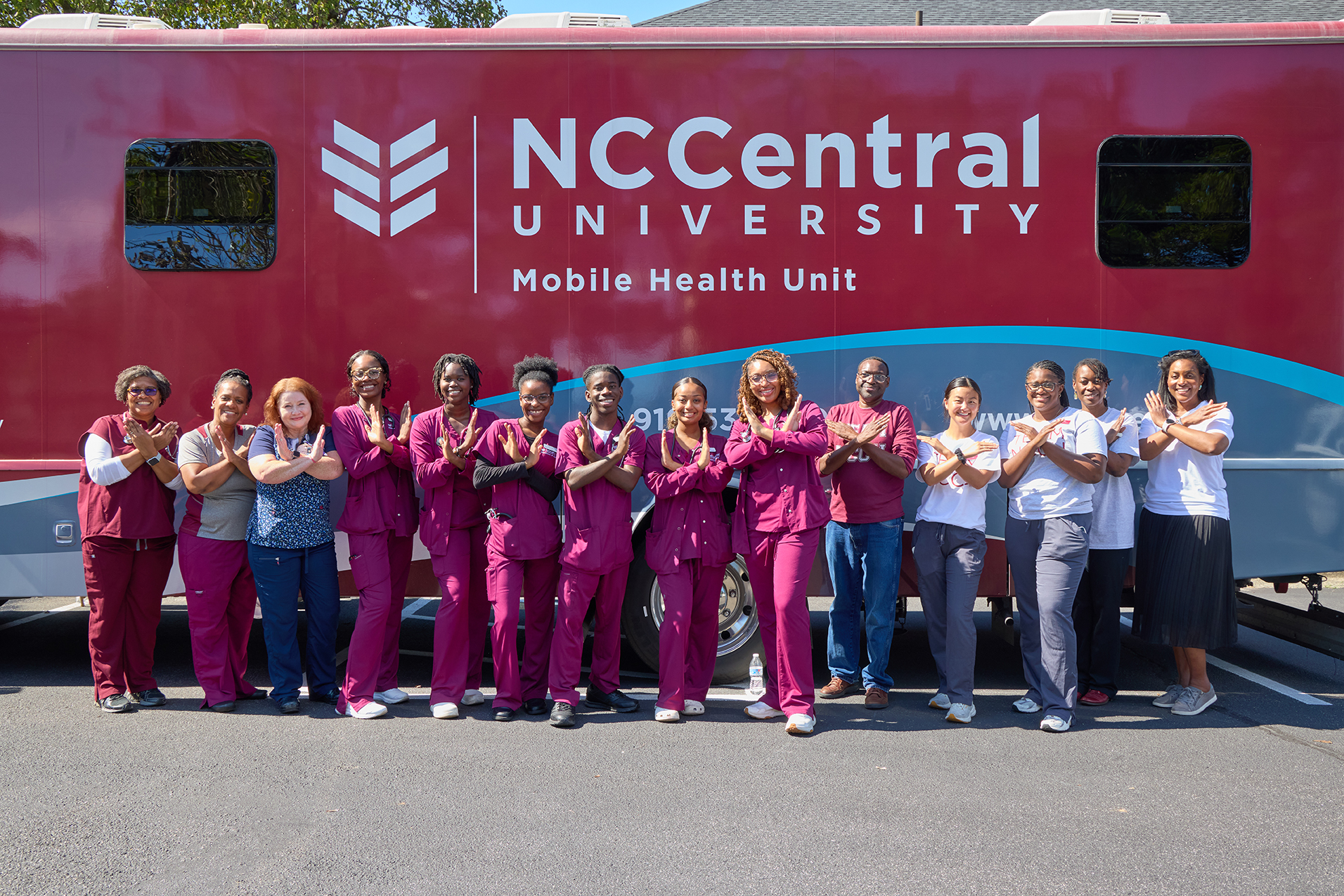Rooted in Wellness Day brings health care closer to the people
DURHAM, N.C. — Intentionality, ultimately, will determine health outcomes for Black and brown people, according to experts, advocates and participants at “Rooted in Wellness Day: Moving OUR Communities from Surviving to Thriving” at St. Mark AME Zion Church.
North Carolina Black Alliance health care program coordinator Karida Giddings organized the event, along with Valarie Dobson and LaQuinta Parker Perry from the church, one of 11 sites across the state functioning Sept. 28 as clearinghouses for health screenings and wellness information. Gov. Roy Cooper proclaimed Sept. 28 as Rooted in Wellness Day in North Carolina.
Durham resident Thomas Hardin has health care but said Rooted in Wellness Day was a very nice supplement.
“Particularly in the Black community, it’s essential that we take advantage of every opportunity that we have for someone to give us a report on what our health status is,” Hardin said. “This will give me a second opinion of what I’m hearing from the doctor.”
No insurance card or copayment necessary out here. Blood-pressure checks, hearing exams, body-composition scans, a little line dancing, lunch — all of it free of charge.
“What does moving our communities from surviving to thriving look like?” North Carolina Black Alliance environmental justice associate Alana Petifer asked panelists during a discussion in the sanctuary.
“It starts with events such as this,” said Undi Hoffler, Ph.D., a health equity researcher at North Carolina Central University (NCCU), where she is director of research compliance and technology transfer in the school’s Division of Research and Sponsored Programs.
It’s about incorporating knowledge acquired during Rooted in Wellness Day and implementing it, making even small changes in a positive direction, Hoffler explained.
“And then beyond self and beyond our primary family units, just also being cognizant and aware of our neighbor and having empathy and care for our neighbor and understanding that if they’re struggling, I’m going to be struggling,” Hoffler said.
Each one, reach one, said Kenisha Bethea, who was representing the Duke Clinical and Translational Science Institute, as well as the African Methodist Episcopal Zion Health Equity Advocates & Liaisons (AME Zion HEAL).
“We are always surviving. I think we wake up surviving — yes, reacting,” Bethea said. “We go to bed surviving. That’s always at the forefront of who we are and what we’re doing because of the barriers.”
Moving from surviving to thriving requires a mindset shift, Bethea said.
“Finding that moment throughout the day, throughout the month, throughout the year where you are at peace, where you feel you can appreciate what you do have,” Bethea said. “We are thriving — maybe not at the pace that we would like — but we are thriving because we’re still here.”
Black and brown people thriving has plenty to do with what happens at ballot boxes, Giddings said. When the right people are in elected offices, there is movement with health equity in the form of Medicaid expansion in North Carolina. That happened Dec. 1, 2023, when some 600,000 people who did not have health care coverage became insured.
“It’s our communities that have benefitted the most from these policy changes in health care,” Giddings said. “On the first day of Medicaid expansion, Black people made up 40% of those who enrolled on Day 1.”
Elected officials want to stay elected, which gives voters the power to set the political agenda, Hoffler suggested.
“If you’re saying it’s a priority, and you’re a voter, then they’re gonna listen to you,” Hoffler said.
Politicians need to know what’s really going on with the people they represent, Bethea offered.
“You need to hear the voices of the community. You need to know what is really important to them,” Bethea said.

“It starts with events such as this,” said Undi Hoffler, Ph.D., a health equity researcher at North Carolina Central University (NCCU), where she is director of research compliance and technology transfer in the school’s Division of Research and Sponsored Programs.
It’s about incorporating knowledge acquired during Rooted in Wellness Day and implementing it, making even small changes in a positive direction, Hoffler explained.
“And then beyond self and beyond our primary family units, just also being cognizant and aware of our neighbor and having empathy and care for our neighbor and understanding that if they’re struggling, I’m going to be struggling,” Hoffler said.
Each one, reach one, said Kenisha Bethea, who was representing the Duke Clinical and Translational Science Institute, as well as the African Methodist Episcopal Zion Health Equity Advocates & Liaisons (AME Zion HEAL).
“We are always surviving. I think we wake up surviving — yes, reacting,” Bethea said. “We go to bed surviving. That’s always at the forefront of who we are and what we’re doing because of the barriers.”
Moving from surviving to thriving requires a mindset shift, Bethea said.
Cancer survivor Tony Howard was at Rooted in Wellness Day raising awareness about sickle cell disease, an incurable blood disorder that can be painful and reduce life expectancy. More than 100,000 people in the United States have the disease, which impacts 1 out of every 365 Black births, according to the American Red Cross.
“This is a problem that is primarily exclusive to our community, and we must step up,” said Howard, a Black man and the American Red Cross’ sickle cell interim emerging marketing manager for southeastern North Carolina. “Most physicians are not trained to ask you questions about sickle cell unless there’s something specifically going on with you that makes them explore that option. So it’s upon us to be advocates for our own good health.”
After registering to donate blood to help those with sickle cell disease, the process itself will take about 15 minutes, benefit three people with the disorder, position donors to learn whether they have the trait for sickle cell disease, plus put $20 in their pockets, Howard said.
“Now you’re empowered to control your own destiny. Now you’re empowered to plan. This is upon us,” Howard said.

Tracie Locklear, Ph.D., project leader for NCCU’s Clinical Research Science Program, was at Rooted in Wellness Day underscoring the need for Black people to participate in research studies. What most people don’t know is most medications on the market are not made for Black people, she said. Side effects and risks from medications are associated with white people, who more readily show up for clinical trials, Locklear explained.
“That’s where we get a lot of our data,” said Locklear, a Black female. “So if individuals like you and I are not participating in these clinical trials, we don’t know how these medications are really gonna work for us in our population.”
AME Zion HEAL is a partnership between AME Zion churches in North Carolina and Duke Health to ensure clinical research participation accurately reflects the state’s communities. Building trust through transparency is the goal.
Impacts from Hurricane Helene postponed Rooted in Wellness Day in Asheville. Organizers are rescheduling it.
“Hurricane Helene has devastated Asheville with damages brought on by the storm and interrupted community infrastructure,” Giddings said. “In light of the storm, Rooted in Wellness Day will highlight resources and infrastructure that help Asheville to be resilient as we witness the impacts of climate change. It will take time for the community to be restored and for folks to find their new normal, but I hope Rooted in Wellness Day can serve the purpose of infusing resources into Asheville during this challenging time.”
